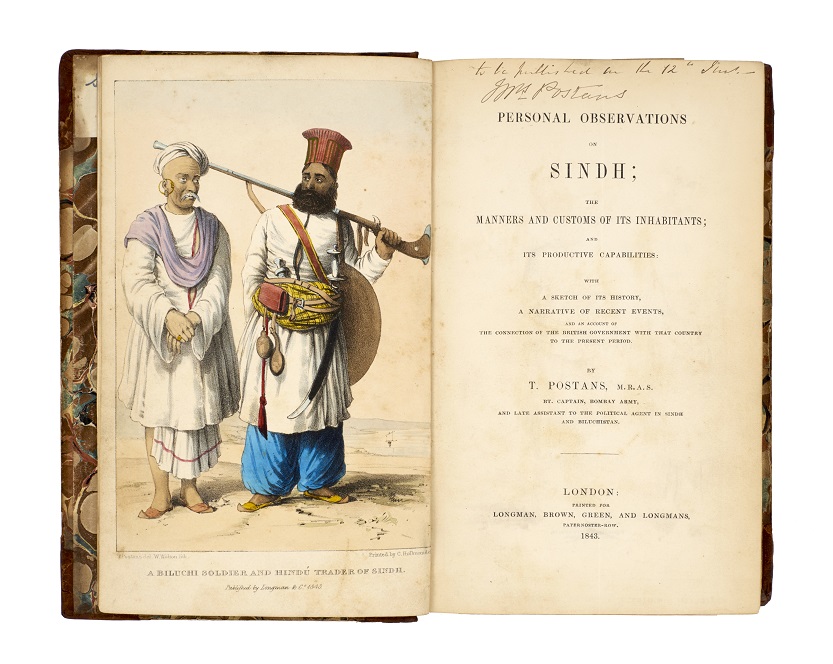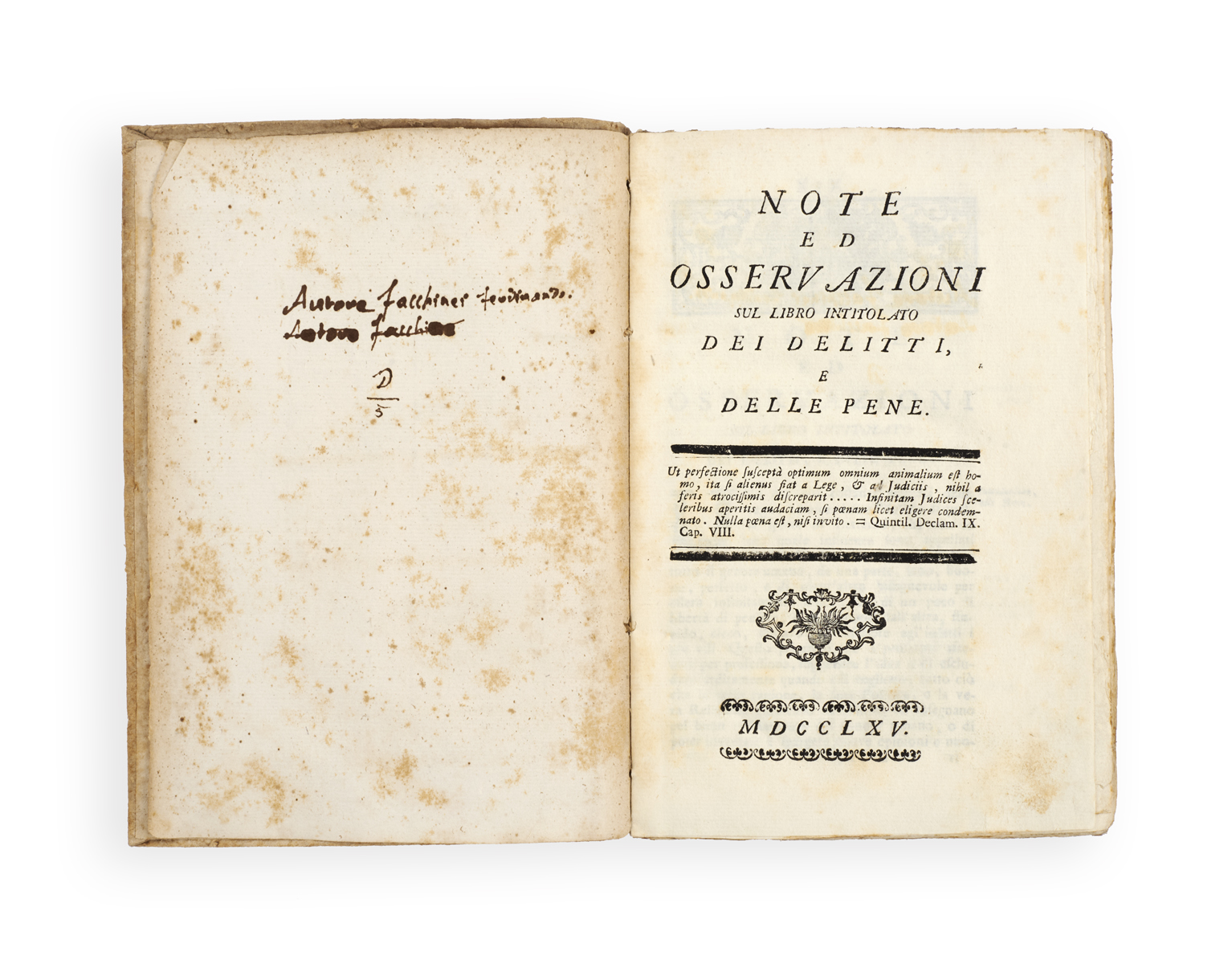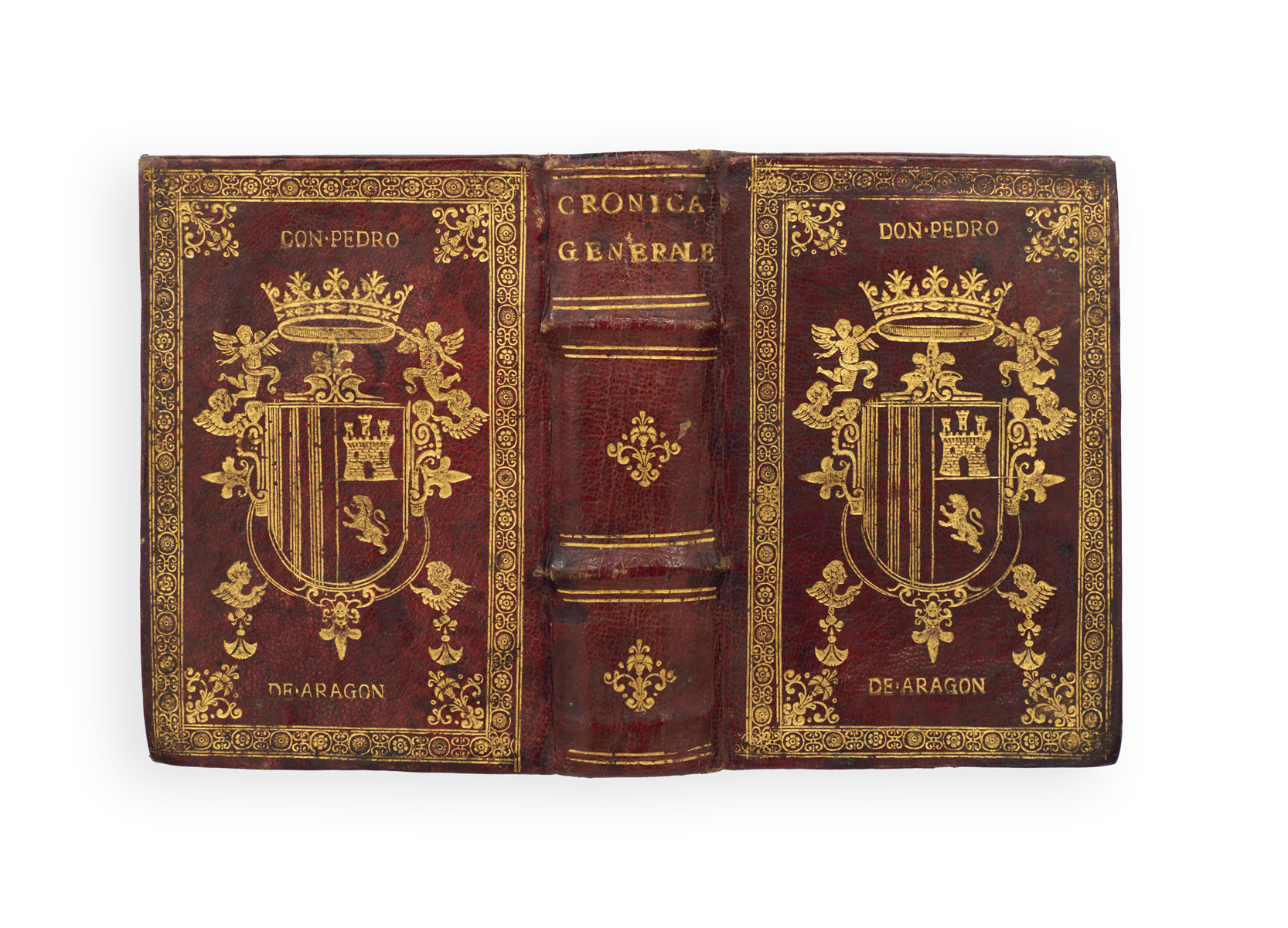
ADVANCE COPY
POSTANS, Thomas.
Personal observations on Sindh; the manners and customs of its inhabitants; and its productive capabilities: with a sketch of its history, a narrative of recent events, and an account of the connection of the British government with that country to the present period ...
London, Longman, Brown, Green, and Longmans, 1843.
8vo, pp. xv, [1], 402; with coloured frontispiece, folding ‘Map of Sindh’ and 13 woodcut illustrations within text; a little light foxing, neat repair to fold on verso of map, light central vertical crease to first few pages; very good in contemporary half calf over marbled boards, marbled endpapers and edges; rebacked and recornered, spine lettered in gilt, boards rubbed; inscriptions at head of title ‘to be published on the 12th inst’ and ‘Mrs Postans’, inscription from Fred H. Postans to Margaret Ellen Postans (Jan. 1913) and ink note to front free endpaper, two pencil corrections to p. 402.

Added to your basket:
Personal observations on Sindh; the manners and customs of its inhabitants; and its productive capabilities: with a sketch of its history, a narrative of recent events, and an account of the connection of the British government with that country to the present period ...
First edition of this important account of Sind, an advance copy that belonged to Postans’s wife. Published in the same year as the annexation of Sind by Sir Charles James Napier, Postans’s work gives an account of the region’s geography (including Karachi, Hyderabad, and the river Indus), ethnic groups, agriculture, commercial produce, flora and fauna, government, trade, and history, including British involvement. Postans, like many contemporary politicians and members of the East India Company, questioned the wisdom of Napier’s annexation: ‘in displacing the Talpur government of Sindh we bring upon ourselves the necessity of a military occupation of the country for an indefinite period; and ... instead of the result being an improvement of commerce and agriculture ... our expenses will be fearfully increased, our troops demoralised, and our position one of unmixed difficulty’ (p. 354).
Postans (1808-46) joined the East India Company in 1827, commanded an infantry regiment of the Bombay Army, served as political agent in the Upper Sindh and Biluchistan, and acted as a Persian interpreter to the Sindh Force. He died at Deesa shortly after being appointed boundary commissioner. This copy belonged to his wife Marianne. Postans’s papers are held at SOAS.

